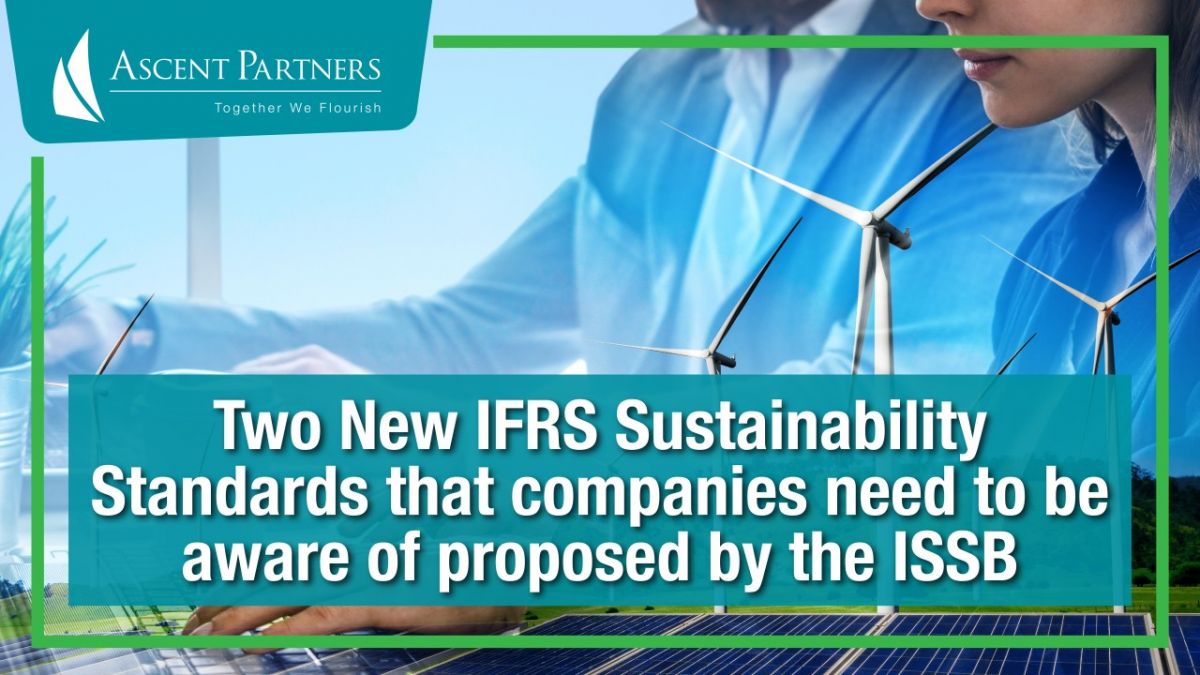
Two New IFRS Sustainability Standards that companies need to be aware of, proposed by the ISSB.
Companies potentially face a further tightening of ESG reporting standards as Europe leads the way.
Following on from the Glasgow 26 in November 2022, the creation of the International Sustainability Standards Board (ISSB) by the International Financial Reporting Standards (IFRS) Foundation may possibly have serious implications for both companies and investors.
This means that four of the top five sustainability reporting organizations are now together on a benchmark reporting standard, making it likely to become the leading authority for mandatory reporting around the globe.
In Europe, regulators have attempted to match the need for investors to have greater information on ESG issues and the question of whether such factors are deemed financially material.
This is where the concept of “double materiality” is an issue that needs to be examined.
Materiality in its broadest definition refers to a company’s ESG impact on its financial performance.
However, European regulators are pushing to include how corporate information on a firm’s impact on the world at large, particularly with regard to climate change and other environmental impacts, are separate from financial materiality. That is double materiality.
In the US, regulators are taking a slightly different approach, arguing “The addition of specific ESG metrics, responsive to the wide-ranging interests of a broad set of ‘stakeholders,’ would mark a departure from these fundamental aspects of our disclosure framework”, according to Hester Peirce, Commissioner on the US Securities and Exchange Commission.
So which way will Hong Kong and other Asian economies go? Should sustainability reporting become largely a tool for investors to minimize risk and seek financial opportunities; or should it serve as a deeper indicator of corporate responsibility, ensuring companies act in the broader, long-term interests of society?
Looking at the current regulations set out in Hong Kong, the concept of double materiality is broadly covered in the guidelines under Scope 3 emissions – “All other indirect emissions that occur outside the company, including both upstream and downstream emissions.”
This includes paper waste in landfill, electricity consumed for processing fresh water and sewage by government departments, and air travel for business by employees.
As ever, however, the devil is in the detail. “The issuer may choose, with quantification methodologies and necessary input information used being well-defined and easily available to the issuer, to quantify and report other indirect GHG emissions that are relevant to their activities and goals.”
Rather than being a mandatory requirement, the onus is on the company to act responsibly in its disclosures. Hopefully, in the near future, optional disclosures for scope 3 emissions will be made mandatory, as they currently are for scope 1 and 2.
Then double materiality will become a reality rather than a concept.
